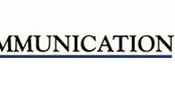Home
About
Our PIE Model of Communication
Programs
Coaching
Consulting
Clients
Free Articles
Media Center
Blog
Success Store
Contact Us |
Be SMART with Your Goals
By Edward Leigh, MA
At the beginning of the New Year and people enthusiastically talk about their resolutions / goals. Goals are critical in our lives, both at work and at home. Not having goals is like going on a driving trip without directions. Would you plan a vacation trip without having a destination? Unfortunately, many people / organizations do not achieve their goals. This is because their goals are not SMART. No, I am not questioning their intelligence; I am referring to an acronym that describes the attributes of an effective goal. SMART stands for these five characteristics:
- Specific: A clear concrete goal has a much greater chance of working versus a vague goal. For example, "We need to improve interdepartmental communication" is too general. A better goal would be "We need to improve communication through employee training in the next three months." This could then be broken down into specific communication topics, such as listening skills and email correspondence.
- Measurable: Determine criteria for achieving your goal so you could measure your progress to attain your objective. This allows us to track our progress. In other words, identify markers that will determine when you have reached your goals. For example, a hospital may say, "We need to see more patients." That is a poorly defined goal that cannot be measured. A more effective goal is, "We need to increase the number of patients we see by 10% within the next twelve months." We now have a measurable objective; the measure being the percentage of patients seen from the present moment to the given moment in the future. We can calculate this very easily, based on the recorded number of patients visiting the hospital.
- Attainable: Always set goals that have a fair chance to be met; the key word here is realistic. I am not saying you should set "easy" goals that are not challenging. Rather, you are encouraged to set difficult ones as long as they're practical. Your goals should be challenging enough to make you stretch, but not so far that you break. People rarely achieve significant goals by sitting contently in their comfort zone.
- Relevant: The goal must be pertinent for you. The goal has to mean something to you. You need an emotional connection with the goal. Without this you will have difficulties finding the motivation to drive your efforts. For example, asking the human resources department to enhance the organization's computerized infrastructure would be irrelevant. We are working with the wrong department. The HR department deals with people issues, the IT department deals with computer matters.
- Time sensitive: Any functional goal must have a clear timeframe of when it should start and/or when it should end. Without having a timeframe specified, it is practically impossible to say if the objective is met or not. A goal without a deadline is simply a dream. Set a realistic yet challenging deadline for accomplishment.
SMART Goal Example Many people have goals of taking off weight, so we will use the SMART goal setting technique to plan our weight reduction strategy.
Goal: Shed 25 pounds in six months through weight checks every two weeks at the gym.
SMART characteristics:
- Specific: shed 25 pounds
- Measurable: weight checks every two weeks at gym
- Attainable: taking off 25 pounds in six months is realistic (and healthy!)
- Relevant: Taking off weight is certainly significant for a number of reasons such as improved health and appearance
- Time-Sensitive: Six-month period
You can only be truly SMART with goals by writing them down. It is does not matter whether you write them by hand in a notebook or type them into a computer, the important thing is "get it writing."
It’s the New Year, which means new exciting goals for you! Be a "Goal Getter."
<< Back to articles | Download this article
|

